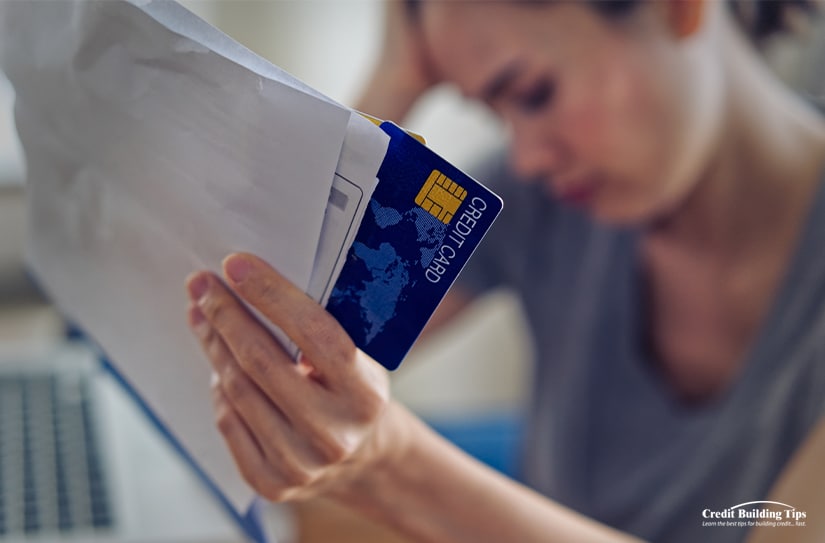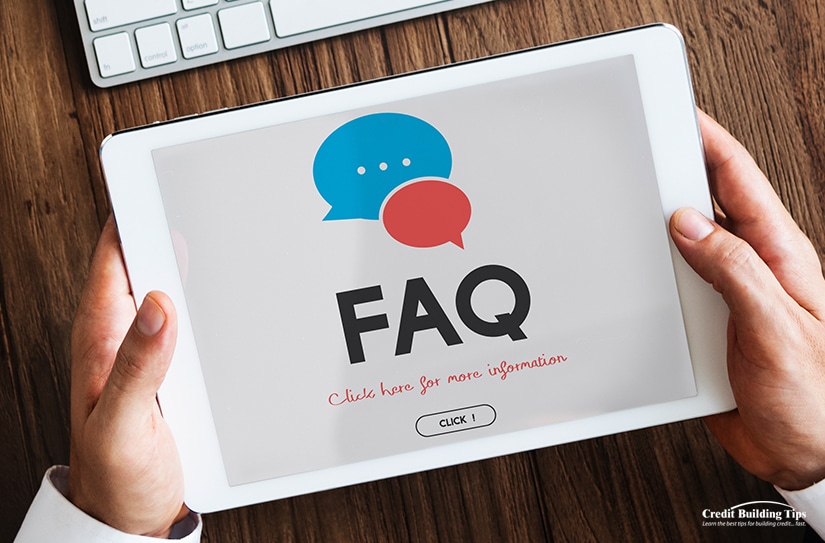As Americans, we love our credit opportunities. According to recent stats, 83% of adults (8 in 10) say they have at least one credit card, and the average American has a total of five credit cards.
The projection for the total number of credit cards in use in 2023 is more than 1.25 billion. Nearly 193 million — a growth of nearly 6% is expected this year.
 But sometimes, you'll find yourself needing to close one of your credit cards, and in today's post, we'll discuss good reasons you may want to close a credit card, what happens when you close your card with a remaining balance, and how to close your card safely.
But sometimes, you'll find yourself needing to close one of your credit cards, and in today's post, we'll discuss good reasons you may want to close a credit card, what happens when you close your card with a remaining balance, and how to close your card safely.But first, are there any good reasons to close a credit card?
Your financial situation will determine whether you should close a credit card, but before you do, you need to think through whether it's a good idea.
There are a few reasons it may be better to close a credit card than to keep it open. Here are five:
1. Someone has used your card fraudulently. While almost every credit card issuer is quick to help if your card has been lost or stolen, there are occasions when you might want to close your account if you find you need to fight to get the fraudulent charges reversed.
Making an on-time online purchase can happen only to find the supplier continues to send you the product and charge your credit card. Or you gave someone your credit card number, and they charged you more than you agreed to every month.

2. The annual fees are higher than the savings you get from the card. Most credit cards with higher (or higher) annual fees offer lots of perks, but at some point, you need to consider if the rewards give you more than the cost of the annual fee.
A simple way to calculate this is to add up the value of all the combined rewards you've earned in 12 months and then deduct the annual fee cost. This will inform you whether you end up ahead or behind. If the cost of the card is more than the value you get, close the card.
3. You've found better rewards with another card. Reward cards continually work to compete to offer the best possible rewards in order to entice new cardholders.
While you don't want to easily transfer from one card to another, if your current card causes you to miss out on savings other cards offer and they aren't willing to match a better card rewards plan, you may want to close your account.

4. You're going through a separation or divorce. If you share a joint account with a soon-to-be partner or spouse, you'll want to close the shared credit card. As long as the account remains open, you are both fully responsible for all the bills, whether you approve of the purchase or not.
Even if you have a divorce decree that says the other person is the one responsible for the bill, the credit card issuer won't see it that way as long as there is any outstanding amount owing. Open a credit card in your own name and transfer any balance to your new card.
5. The card simply no longer makes sense. A credit card may no longer make sense if, for example, you have a card that gives you great travel rewards and you no longer travel.
If your business (or pleasure) requires you to travel extensively, having a travel reward makes perfect sense. But if that's no longer the case, you may do better with a different type of rewards card that offers rewards you can use.
Closing a credit card, even without any money owing, can have an impact. We'll unpack this in the next section, but first, let's address what happens when you close your account, which still carries a balance owed.
The bottom line is that you will be responsible for the money owing, no matter how long the account has been closed. And the longer you don't pay the balance, the worse the impact will be.
Credit card issuers will continue to charge you interest on the amount owing. If you close an account with money owing, that amount can grow to far more than the product or service was worth over time.

Let's say you've purchased a pair of Nike basketball shoes for $150 and decided to close your account without paying off the purchase. The average APR on a credit card in 2022 is 15.13%.
"To calculate how much interest you'll pay each day you carry a balance, you can convert your annual percentage rate to a daily percentage rate by dividing it by 365 [days in a year]. At the end of each day, the credit card company multiplies the current balance on your account by the daily rate. That daily interest charge is added to your balance the next day."
Using this formula, your $150 unpaid balance with a 15.13% APR will be calculated at 0.06%. One day's interest would only be $0.06. But that six-cent interest will be added to the total $80, so now you owe $80.06.
Every day you don't clear up the payment, the interest will be added to the total owing. On day 2, the interest will be charged on $150.06 — still just another $0.06. You can probably afford that, right?
Let's fast forward and see what the compound interest will do to the amount you owe after 10 years. If you simply ignored the charge over that length of time, you would owe $613.73 and continue to increase until you paid the bill in full.
Now, while that may not be completely devastating, and you may be in a better place to pay off the full amount, the greater the balance owing, the more you will owe in the future. If you closed your credit card account with a $1,500 balance owing, after 10 years, you would owe a whopping $6,137.29.
And an important thing to know about credit card companies — they never forget and they never forgive. The only way to get out of this debt is to pay it in full or declare bankruptcy.
The bottom line is that, yes, it can. Not forever, but certainly in the short term. Closing an account can change your credit history and your credit utilization rate (CUR), two major factors when it comes to calculating your credit score.
The longer you've had the account, the more closing it will affect your credit score. If you have $25,000 worth of credit between three credit cards and you close one, your available amount of credit will drop, affecting your utilization rate.

Let's imagine a case scenario:
Your current utilization rate is the total owing divided by your total credit limit. With $25,000 available credit and a total of $10,244 owing, your CUR is 41%.
Now you decide to close credit card B after paying off the balance of $2,434 in full. This means your available credit limit has dropped down to $15,000, and your total owing is $7,810. Your CUR has now jumped to 52%.
Ideally, you want to keep your CUR at 10%, but as long as it is below 25%, you can still have a good credit score. Neither of these examples indicates a good score, but you get the idea.
One of the best ways to minimize the impact on your CUR when you cancel a credit card is to move your credit line from one card to another. This will keep your overall credit limit intact, and your CUR won't change as drastically.
If you do decide to close your credit card, you'll want to take full advantage of any rewards or points on the account before you cancel the card.
Once you use every last point or reward, the next step is the most important — pay your balance in full. Stop using the card before you cancel it and wait for a final statement that shows you have a zero balance owed, or call your credit card issuer and request a written confirmation that your account balance is indeed zero.
You'll always want to let any authorized users on your account know that you intend to cancel the card. Authorized users are anyone who is "permitted to use another person's credit card." Ultimately, you are responsible for any charges an authorized user on your account incurs.

Setting up recurring payments on your credit card is very common, and you'll want to make sure those are transferred over to a different card before you cancel the card. This will make sure you don't experience an interruption in service or deliveries.
Once you've taken care of these steps, you can contact your credit card issuer (call the number on the back of the card) and let them know you are closing your account. Once you do this, cut up the card and throw the pieces away in separate garbage bags. That way, no one can piece the information together and try to use the card.
Wait 30 to 45 days after you cancel the card, and then check your credit report. Look to make sure there's a report stating the account is closed, and the balance is zero.
You're not the only one who can choose to close your credit card. The credit card issuer can legally cancel your card at any time. They might not even give you advance notice, so the first time you're aware your card has been canceled is when you're at a till attempting to make a purchase.

Some of the most common reasons your credit card company may cancel your card are because :
Q: How many credit cards are too many?
A: When you consider how many credit cards are too many for you, one thing you may want to think through is how many you can manage well. Look at your credit report and score, review your utilization and payment history, and consider the credit card company rules.
Q: How many credit cards are ideal?
A: Having two or three credit cards can help maximize savings while increasing spending power. And if you use the cards responsibly, it can also help improve your credit.
Q: What are the benefits of having multiple credit card accounts?
A: There are some benefits to having more than one credit card. This can let you get the best collection of rates and rewards when buying big-ticket items.

Q: What types of credit cards should I get?
A: We suggest you get one flat-rate cash-back credit card for everyday expenses and one bonus credit card for travel when applying for different types of credit cards. In addition, you may want to consider getting a balance transfer card to reduce your existing debt.
Q: How often can I apply for a new credit card?
A: Don't apply for too many cards quickly, as every application causes a hard inquiry on your credit report. Hard inquiries or pulls temporarily hurt your credit score, so it's best not to trigger too many quickly.
Q: What happens if I have a negative balance and I close my card account?
A: You'll be pleased to learn that there is a six-month law that requires the credit card issuer to pay you back that money. You won't get any interest on the money they owe you, but you can have confidence you'll get the money back, usually via a check or money order.
The bottom line when it comes to closing a credit card is to make sure there isn't any money left owing on the account. Keeping your credit score healthy can make a huge difference when you need to secure financing for projects. You'll get access to more options, lower interest rates, and more lender choices.